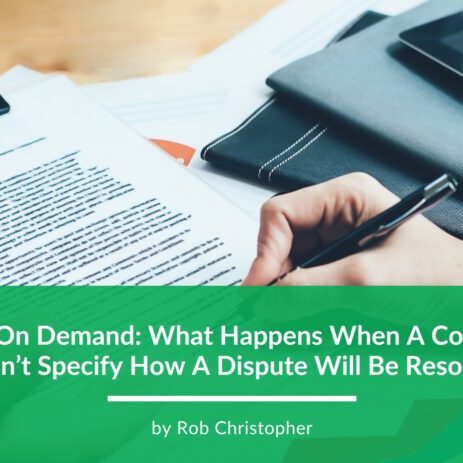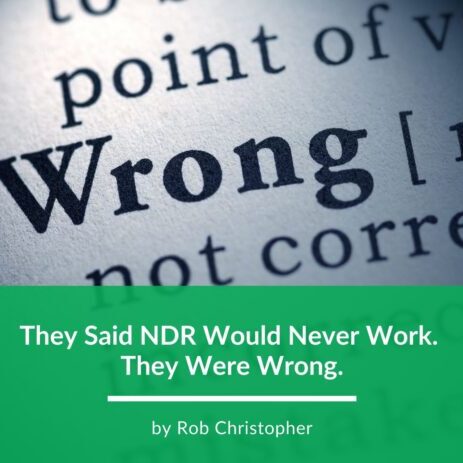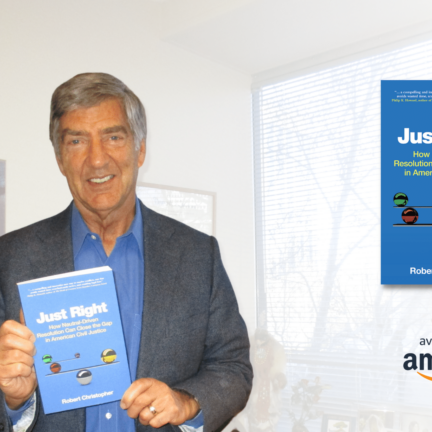Arbiter Spotlight – Anne Jordan
 Anne Jordan is a practicing attorney in Chicago who recently joined Just Resolve as an Arbiter. Ms. Jordan has been mediating and arbitrating disputes since the early 1990s. Her practice involves corporate, commercial and technology work, as well as litigation. Her career has included general counsel positions in Silicon Valley at such companies as PeopleSoft and Sega of America, and as a partner in the Palo Alto law firm of Carr & Ferrell. She is currently with the Chicago firm Mandell Menkes LLC.
Anne Jordan is a practicing attorney in Chicago who recently joined Just Resolve as an Arbiter. Ms. Jordan has been mediating and arbitrating disputes since the early 1990s. Her practice involves corporate, commercial and technology work, as well as litigation. Her career has included general counsel positions in Silicon Valley at such companies as PeopleSoft and Sega of America, and as a partner in the Palo Alto law firm of Carr & Ferrell. She is currently with the Chicago firm Mandell Menkes LLC.
As part of our “Highlight an Arbiter” series, Ms. Jordan agreed to answer a few questions regarding her background and how that fits into Just Resolve’s Arbiter Program. She also discussed the role she sees Just Resolve playing in the alternative dispute resolution industry.
What unique experiences do you bring to Just Resolve as an Arbiter?
In my work as an in-house counsel, I took on two roles – an attorney for my employer and a client of the law firm I retained. When you are faced with a dispute as a client, there is a natural tendency to pursue a course of action, usually litigation, since it’s very hard to simply walk away from money or damages that you believe you are owed.
As an attorney, you have to be objective. You know that if you end up in litigation it will settle something like 95% of the time, that the settlement will come several years down the road, that it will generally cost as much or more than what you could have settled for early in a case, and that to get to that point, you will have spent a lot of money on attorney’s fees. If you don’t settle, you can’t forget the fact that given the unpredictability of litigation, your client could lose the case.
If you can’t get to an early resolution of the dispute, you often have regrets later on – a lot of “if only I knew then what I know now . . .” – meaning you wish you would have taken advantage of the opportunities you had to resolve the dispute sooner rather than later. That’s because of the time and money you’ve had to expend in the interim.
When I am acting as a mediator or arbitrator, I try to help the parties see that it’s advantageous for them to get their dispute resolved quickly and get back to business. Once you decide that you’re going to fight, you can’t simply walk away when you feel like it; there are procedural constraints that limit that. So I think it’s important for the parties to realize that litigating or otherwise being involved in an ongoing dispute takes a certain toll on the participants.
What will make you successful as an Arbiter?
In almost every dispute, there are two important dynamics at play – the emotional desire to get even, right a wrong or save face, and the desire to be compensated for the actual economic damage. Litigation and arbitration address the damage issue, but they often don’t adequately satisfy the participants’ emotional needs. How often have you heard someone say that they wouldn’t have brought suit if the other side had just apologized. We’ll never know if that’s really true, but courts and arbitral tribunals just aren’t set up to give the parties emotional satisfaction, except to extent it is incidental to winning the case.
To be successful as an Arbiter, you have to recognize the emotional dynamic, but at the same time not let the parties’ emotional battles detract from reaching a resolution. It’s important for me, as an Arbiter, to acknowledge what the parties may be feeling and then manage expectations so that they understand the legal recourse available. That understanding helps them avoid a perception that the process is arbitrary and unfair, as well as clarifying what a successful outcome would look like for the prevailing party.
I have the ability to get to the core issues, identifying what the real issues central to a dispute are and simplifying the path toward resolution. Parties sometimes focus on extraneous issues that are not helpful for actually resolving the matter. I can identify those and get the parties to focus on the real core of the dispute, leading to an overall resolution of the matter.
What do you think differentiates Just Resolve from ‘traditional’ ADR services?
I see Just Resolve as not changing the basic structure of what happens in litigation or arbitration – fact finding and rendering a binding decision – but doing so through a non-adversarial process intended to be significantly more flexible, efficient and streamlined, while still providing finality. In my experience with Just Resolve, the Arbiter is expected to control the extent of the fact-finding, limit or avoid extraneous legal wrangling, and move things forward more quickly than judges or arbitrators often can which can have a major impact on the cost of a dispute and the time it takes to get to resolution. Just Resolve also allows for the inclusion of the mediation process within the overall process giving the Arbiter flexibility, which will be a positive in most cases.
You are already arbitrating and mediating disputes, why choose to join Just Resolve as an Arbiter?
I like that Just Resolve’s process reduces the time and expense to resolve a dispute, while still giving parties the ability to effectively present the facts in support of their positions. It also seeks to align its fees with the amount at stake in the dispute.
Parties often spend too much time and money getting to the point where a dispute can be resolved, and even though it’s not my money, it’s frustrating to see that happen. As an Arbiter with Just Resolve, I have more flexibility than in other types of proceedings to control the process; so as the decision maker, I do not have to sit back and watch the parties engage in fact finding or posturing that will ultimately have little or no bearing on how the dispute is resolved. It is a very results-oriented process that gives me, as the Arbiter, greater control.
Why would companies or individuals use Just Resolve when there are other options?
Just Resolve offers individuals and businesses the ability to resolve disputes that might not otherwise be able to be litigated or arbitrated economically. Just Resolve provides an option for individuals and businesses when their only other alternatives would be to walk away from certain claims, give in to unreasonable demands, or litigate the dispute anyway but pay more than the dispute is worth.
Just Resolve is also an option for individuals and businesses that want to see disputes resolved on their merits at a lower cost than litigation or arbitration.
More to read
NDR on Demand: What Happens When a Contract Doesn’t Specify How a Dispute Will Be Resolved?
The best way to deter threats of litigation and minimize the costs, duration, and distractions of resolving any dispute is to put a dispute resolution clause specifying NDR — Neutral-Driven Resolution — in all your contracts BEFORE there is a problem. That means that if a dispute should arise between a business and a contractor,…
They Said NDR Would Never Work. They Were Wrong.
Many people are surprised by how effective NDR can be. Since publishing my book and speaking at events about NDR (Neutral-Driven Resolution), I’ve often been asked a simple question: Does it work? And if it really does lower the costs and the time it takes to settle common disputes, why doesn’t everybody know about…
“Morgan Hill author releases new book”
The Morgan Hill Times featured Rob’s new book in an article ahead of his “Meet the Author” night at Booksmart. “Legal disputes and conflicts cost businesses billions of dollars a year in lawyers’ fees, lost productivity, time and aggravation. A new book by Morgan Hill author Robert Christopher proposes an innovative, faster and simpler way…
Not All Disputes are Equal
Not all business and legal disputes are alike, and not all of them can be resolved in the same way. In writing my book Just Right: How Neutral-Driven Resolution Can Close the Gap in American Civil Justice, it was important to distinguish the types of common disputes for which NDR is most suitable. As readers…



